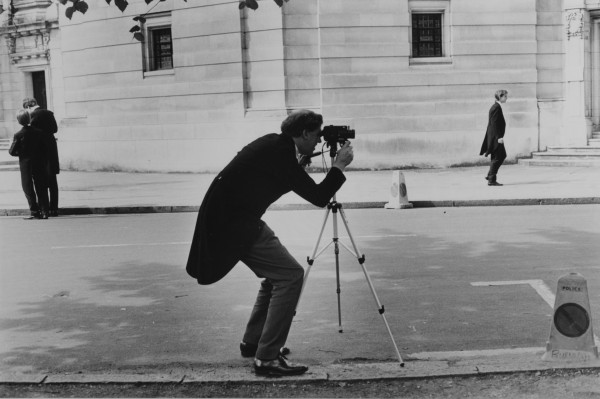At the beginning of October 2020 I started my role as the Archives Assistant at Eton College and through my experience I have been able to take part in a number of different projects, covering almost every area of archiving.
One of the responsibilities I had was assisting the archivist, Georgina Robinson, with creating content for our social media outlets such as the blog and the new archives twitter page. The first project I worked on within this area was the #SchoolArchives twitter challenge that was created by members of the School Archives & Records Association (SARA). The challenge involved looking at a different aspect of school life each week, such as exams or sport, and finding material in the archives relating to that theme to post on twitter. This project provided a great opportunity to explore parts of the archives that I potentially would not come across in my other projects! I also found that during a large portion of this project I was led to rely quite heavily on the existing digital resources we have on our website due to the lockdown at the beginning of 2021. This reliance encouraged me to think a little more outside the box when finding content for these prompts, for example for the ‘School English’ prompt I managed to find an article in the Chronicle from the 1800s on the boys’ lack of knowledge of English literature. The article claimed that ‘in 9 cases out of 10 to English Literature, they are at once at a loss’ (The Chronicle no. 232, 11th November 1875).
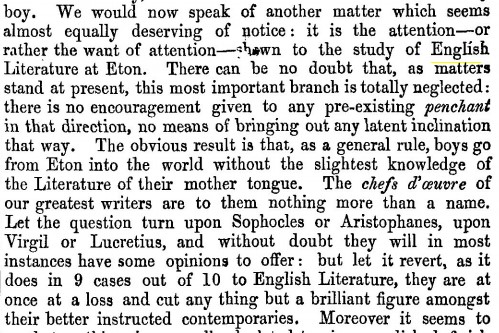
This project also helped to give inspiration for another social media project, the ‘Within the Archives’ podcast. Like the SARA campaign, the podcast explores a different theme each month and the materials we have in the archives relating to that topic. The aim of the series was to explore aspects of the College’s history through the archives’ contents, as well as to provide new perspectives on some of these aspects. Again during the lockdown I often turned to the Chronicle and the Etoniana magazines for inspiration, as well as other materials that had been digitised, and this often led to finding interesting stories to include in the series. For example, for the ‘Societies’ episode I was able to find out more about the beginnings of the Eton College Musical Society, which any who listened to the episode would know was anything but smooth sailing! The February 1864 edition of the Chronicle recorded that at one point it had ‘no President or Officers of any description’, which many can agree is a common problem for most student-run clubs! It was through stories like these that I was able to find a more relatable way of presenting our archival material, which many listeners seemed to enjoy.
I have also been involved in a number of cataloguing projects while working at Eton College. Most of the projects have involved transferring records from physical catalogues to the online catalogue, as well as cleaning up existing records and recording information in preparation for later cataloguing. One of the cataloguing projects I undertook while working here was recording information on a series of letters between tutor H.M Wagner and the Duke and Duchess of Wellington in preparation for later cataloguing. The letters largely concern the education of the Duke’s sons both inside and outside of Eton College, as well as some snippets of the personal lives of the Wellesley family. The project provided both an insight into the relationship between tutors and students at Eton College as well as some palaeography practice through deciphering the Duke’s interesting handwriting. This practice reading handwriting would later aid me in the transcription of wills started by the previous assistant. Working with these letters also gave me some practice into deciding how to group collections of objects in a way that logically reflects the narrative they portray. In most cases the letters came in bundles so I decided to group these based on the bundles they were found in. However a large portion of the letters were loose, so for these I decided to group them based on the sender of the letters as this method often formed a more recognisable narrative in the letters’ contents.
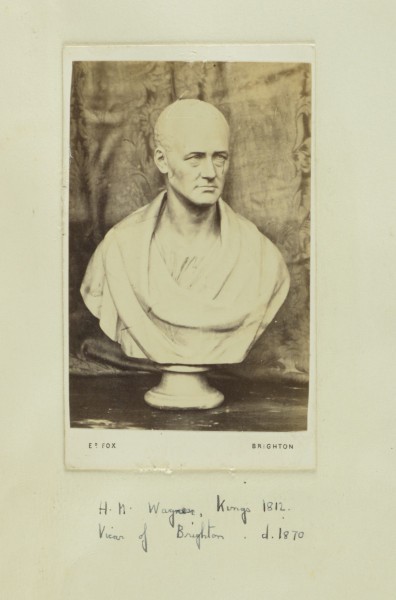
In one of my more recent projects, I was also able to use the knowledge I had gained through working with Eton’s collections to make a display case in the Museum of Eton Life. Earlier in the year I had written an article on the development of Eton College’s curriculum for the Collections Journal and through researching this I learned about Stephen Hawtrey (1836 – 1872) and how he helped to introduce mathematics into the official timetable alongside Latin and Greek. When offered the chance to design a case in the museum, I decided that this would be the perfect opportunity to explore this story further. While searching for objects to put into the display case I was able to uncover more about the construction of the Mathematical Schools and also some insights into Hawtrey himself. One of my favourite items (which I mention in the blog post accompanying the case) was a letter from Hawtrey to the Bursar defending himself against criticisms made regarding his teaching of Euclid, which he goes as far to attach his own essays on the topic to! Making the display case taught me a lot about not only how to display archive materials in a practical manner but also how to do so creatively enough to catch the viewer’s eye.
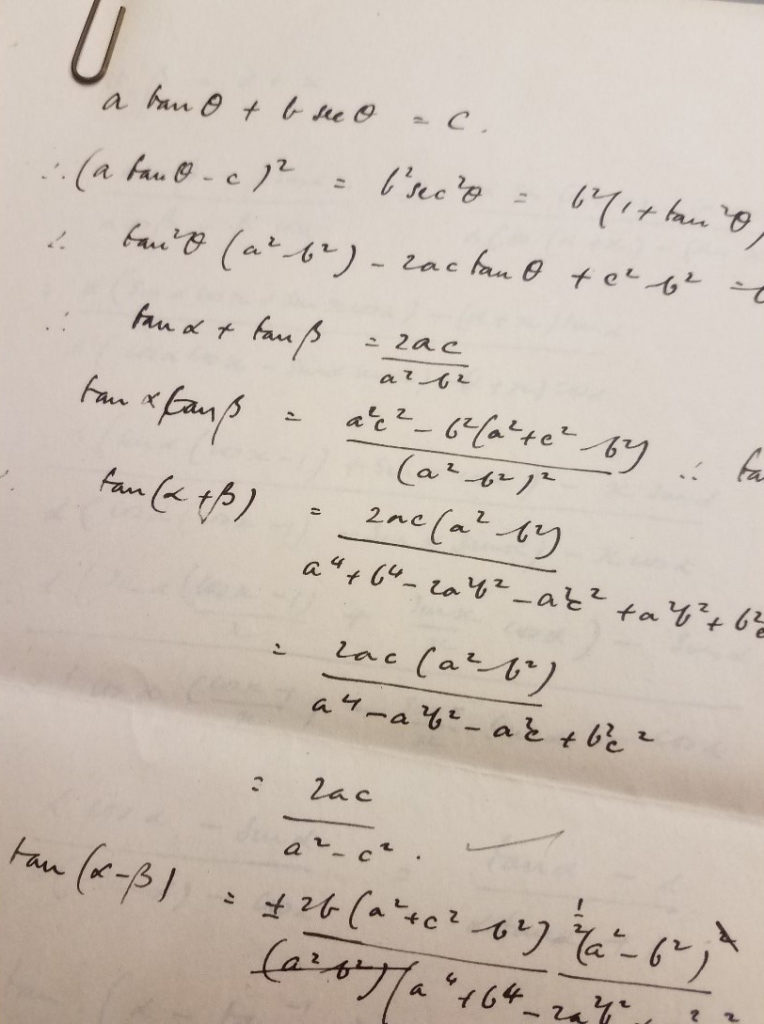
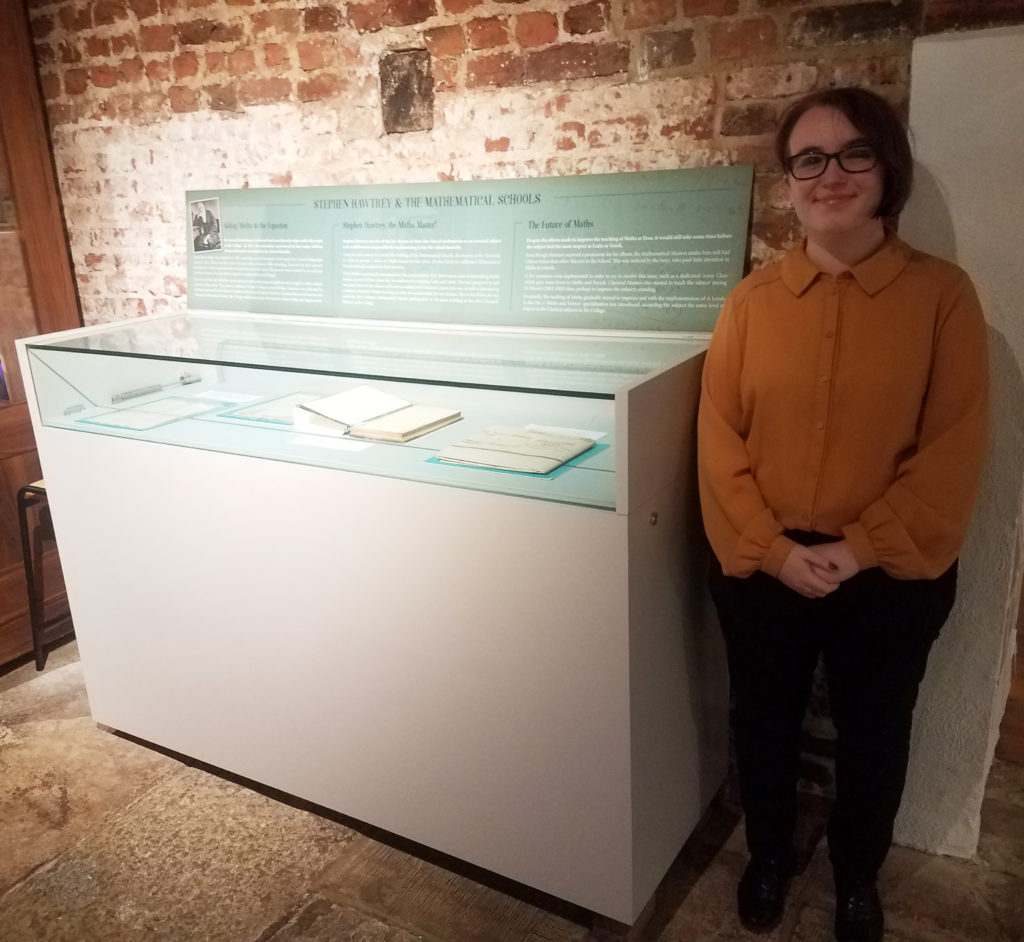
Overall, my experiences working at Eton have been incredibly varied and have allowed me to grow both professionally and creatively. I will always value the time I have spent at Eton College and I am very grateful for those who have made working here so enjoyable!
By Beck Price, Archives Assistant



